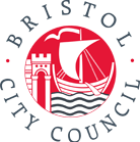“I’m proud of us both for being involved”
For our Impact Review 2024-25 we spoke with public contributors Carl and Chrissy.
Highlights of 2024-25
Leaders' foreword
Maria Kane and Professor David Wynick recap the year.
Research inclusion
Our progress towards making local research more equal, diverse and inclusive.
Health Integration Team (HIT) impacts






